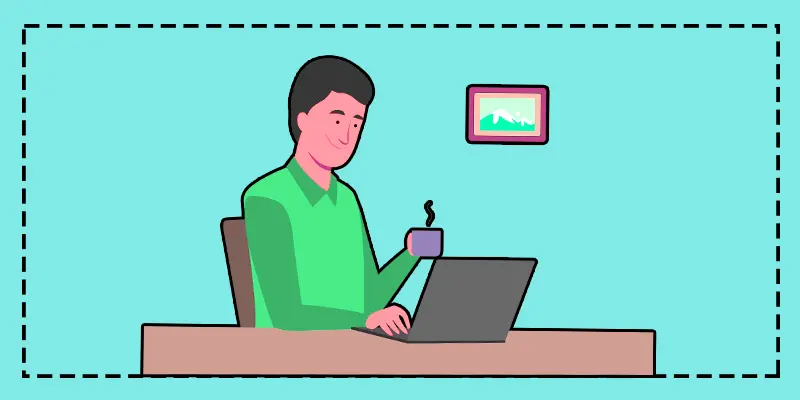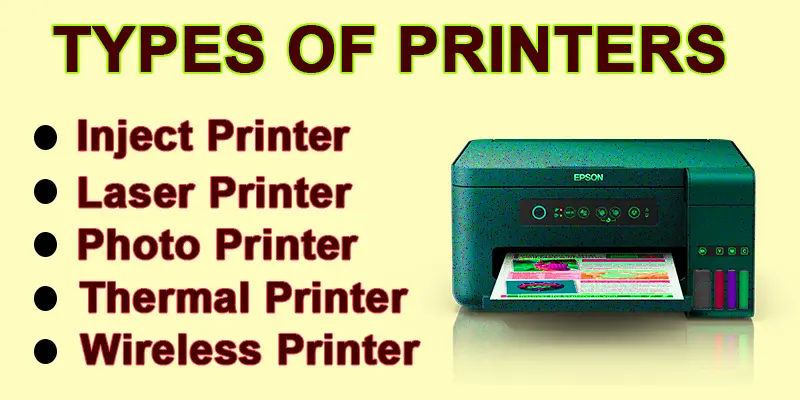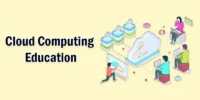Uses of Computers for Education
Published: 22 Feb 2024
Computers have become a big part of education in today’s digital age. They help students to learn in many different ways. With computers, students can find information quickly, practice skills through interactive games, and even join online classes anywhere. Teachers use computers to create fun lessons and keep track of students’ progress. Overall, computers make learning easier and more interesting for everyone.
Uses of Computer in Education
Computers are very useful in education. They help students learn something new daily and make studying easier. Now, we will discuss some common computer-related points.
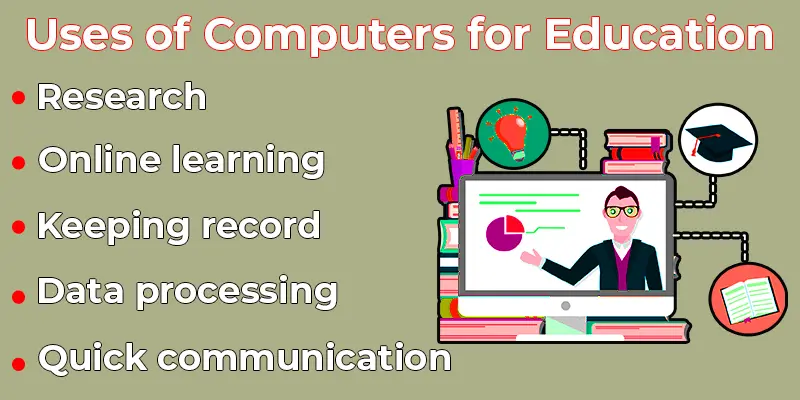
Computer in Teaching and Learning
Computers play a role in teaching and learning. They help teachers make lessons more exciting using videos, animations, and interactive activities. They also make it easier to organize lesson plans and keep track of students’ grades. For students, computers provide a way to learn through educational games and online exercises. In short, computers make both teaching and learning more effective and enjoyable.
Research
Computers are used for research to access online databases, analyze data, conduct experiments, collaborate with other researchers, write research papers, and stay updated on the latest findings in various fields. Computers enable researchers to visualize data and results in different formats, including charts, graphs, maps, and 3D models.
Speed Data Processing
Computers speed up data processing by using powerful processors, efficient algorithms, and specialized hardware such as graphic cards to handle large amounts of data quickly and accurately. Computers use a memory hierarchy consisting of different styles of storage devices, including registers, cache, RAM, and disk storage.
Quick Communication
Computers enable quick communication through email, instant messaging, video conferencing, social media platforms, and collaborative tools. Computers also allow users to share files and documents quickly and easily over the Internet. File-sharing services, such as Dropbox, Google Drive, Copy Paste, and Microsoft OneDrive, enable users to upload, store, and share files with others, promoting collaboration and information exchange.
Easy-to-Access Information
Easy-to-access information means people can quickly and easily find the information they need. Thanks to computers and the Internet, students can look up facts, watch educational videos, and read articles with just a few clicks. This helps them learn more about any topic. Having easily available information makes studying and completing homework much easier and faster.
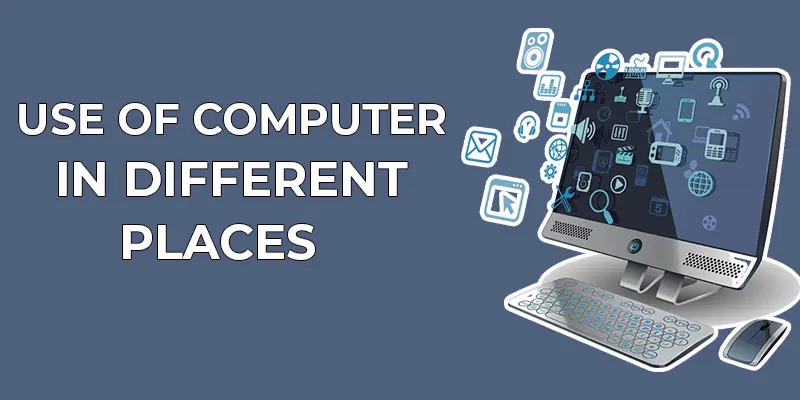
Online Learning
Computer-based online learning through e-learning platforms, video tutorials, webinars, virtual classrooms, online quizzes, interactive learning modules, discussion forums, and digital assessments makes education more flexible and accessible. Computers provide access to education, which is particularly useful in pandemics or geographic restrictions.
Easily Create Any Documents
Word processing programs like Microsoft Word, Google Docs, and Pages, which include features like spell check and formatting options, make it simple to generate papers on computers. Templates and collaboration tools to create professional-looking documents efficiently. Computers provide different publishing and sharing options for documents, printing, email, export to PDF, and sharing links. These options enable users to distribute documents to others easily and in the desired format
Keeping Record
Computers help maintain records by storing and organizing data safely. They also help organizations comply with legal, regulatory, and industry requirements for record-keeping, such as HIPAA, GDPR, SOX, and FERPA. Compliance features include data retention policies, audit trails, data encryption, and access controls to ensure records are managed securely and according to practical regulations.
Education Resources Online
Computers provide educational resources online through e-books, educational websites, online courses, virtual libraries, multimedia resources, educational apps, and academic journals. They offer students, teachers, and researchers various learning materials. These websites offer tutorials, guides, educational games, simulations, and other interactive content to increase the learning experience.
Facilitation Interactive Learning
Computers facilitate interactive learning by using educational software, virtual reality, augmented reality, online collaboration tools, interactive whiteboards, and quizzes to engage students actively in learning. They also promote better student retention and understanding of concepts through automated grading systems, online quizzes, and self-assessment tools, which give students quick feedback and assessment.
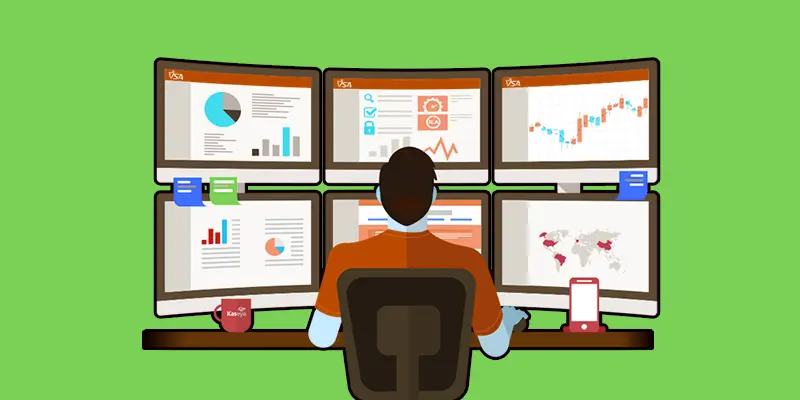
Conclusion for Uses of Computers in Education
Computers have changed education greatly by making it easy to find learning materials online, use fun learning programs, and collaborate with others. They help teachers and students interact with lessons in an exciting and useful way. With computers, students can find much information, do interesting projects, work with classmates and teachers, and learn important digital skills needed in today’s tech-filled world.
How are computers used in school?
Computers are used in schools to help in research and project work, access educational resources online, aid in teaching various subjects through software, and help students develop technical skills important for the modern world.
What benefits may computers offer to education?
Computers support education by giving users access to a wealth of information resources, facilitating interactive learning with multimedia and instructional software, improving student participation and teamwork, and preparing learners for the digital workplace.
What is a computer application in education?
Computer applications in education refer to software programs and tools specifically designed to enhance school teaching and learning processes. These applications can include learning management systems, educational games, simulations, and multimedia presentations.
How is the computer useful for students?
Computers benefit students by facilitating research and improving information retention through interactive learning methods. They allow for personalized learning experiences and enable the development of vital digital skills required in today’s society and future careers.
How does society use computers in education?
Society uses computers in education to bridge learning gaps and facilitate online learning opportunities. It provides access to educational resources globally, enhances educational effectiveness through technology integration, and prepares students for the digital age.
Why are computers important in schools?
Computers are important in schools because they improve teaching methods, enhance student engagement, and prepare students for technological advancements in the workforce. They also provide access to a wealth of educational resources and promote digital literacy skills.
How many students use computers in school?
The number of students using computers in school varies depending on the educational institution and its technological resources. However, in many schools, most students can access computers or tablets for learning.
How can computers be used for both teaching and learning?
Computers can be used in teaching and learning by including educational software, multimedia content, online resources, interactive presentations, and collaborative tools in lesson plans. Learning management systems are another tool that teachers can use to arrange assignments and tests effectively.
What stages does computer use go through in the classroom?
Computer integration into the classroom usually takes stages.
- First, schools start using technology.
- Next, teachers get training on how to use computer programs.
- Then, they adjust the curriculum to include technology.
- After that, interactive learning tools are used.
- Finally, schools keep checking how technology affects student learning.

- Be Respectful
- Stay Relevant
- Stay Positive
- True Feedback
- Encourage Discussion
- Avoid Spamming
- No Fake News
- Don't Copy-Paste
- No Personal Attacks

- Be Respectful
- Stay Relevant
- Stay Positive
- True Feedback
- Encourage Discussion
- Avoid Spamming
- No Fake News
- Don't Copy-Paste
- No Personal Attacks
